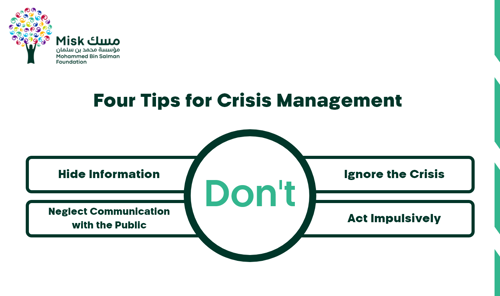
Startups frequently face a series of challenges and obstacles in their early stages as they work to establish themselves in the market. By developing their brand awareness over time, companies can build relationships with consumers and craft a story of success. However, a single misstep—whether a social media post that misses the mark or a poor customer experience—can damage hard-won credibility.
When audiences feel their expectations have been let down, criticism may emerge swiftly. The onus is on companies to understand their customers and respond appropriately when issues arise. An ill-considered or unaddressed response can turn once-loyal users into detractors, reducing a brand that customers considered part of their daily lives into one they see as indifferent to their views.
Definition of media crises
Media crises refer to urgent and unforeseen circumstances confronting news and media organizations that could undermine a brand's reputation and trustworthiness. Such crises may involve the propagation of inaccurate or misleading information, the unauthorized disclosure of sensitive materials, or intense condemnation from customers, citizens, or market rivals regarding coverage or business practices.
Causes of media crises
Media crises can arise due to several potential factors:
As technology has advanced and social media proliferation increased, companies and organizations of all sizes and experiences have become constantly vulnerable to attacks on social media. A single improperly formatted or misunderstood post could potentially cause major losses for a company and reputational damage leading to bankruptcy or market exit.
Therefore, it is crucial for these companies to have a plan in place protecting them and enabling anticipation of events through procedures allowing organizations to professionally and creatively address media crises.
4 Tips on crisis management

Effective Media Crisis Management Strategies
Managing media crises effectively requires the rapid implementation of strategic response protocols. Key elements include:
Preserving institutional reputation is paramount in any crisis response. A organization's reaction can significantly impact public perception and engagement going forward. Swiftly and decisively addressing issues helps curtail potential damage while maintaining stakeholder confidence. Without effective management, reputation, customer/client/user support, and shareholder value may deteriorate over time.
Crises evolve in various forms. In the early 1990s, concerns emerged regarding some companies' employment of children in difficult working conditions for low pay, denying them education and work-life balance. International firms were accused, though some denied allegations despite likely awareness of diminished public trust. Today, cognizant of media crises' impact, many organizations prioritize employee welfare and satisfaction to achieve positive results and shared prosperity.
In conclusion, media crises present an ongoing challenge that institutions must be equipped to handle strategically. Honesty, transparency and prompt, solution-oriented responses are most effective in navigating issues constructively without exacerbating situations or undermining organizational reputation. Strategic communication likewise builds strong, sustainable relationships between organizations and their stakeholders.